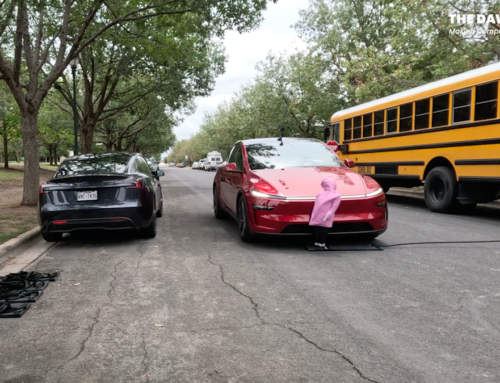El Salvador bishops reject mining resumption, cite environmental, health concerns
January 6, 2025
Catholic bishops in El Salvador have strongly condemned the government’s initiative that reintroduced mining in the country, emphasizing the grave environmental and health risks posed by resuming precious metal extraction.
In a statement, the Catholic Bishops’ Conference of El Salvador reiterated its opposition to lifting the 2017 mining ban. The ban was initially made to protect El Salvador’s water resources and ensure the common good of its population.
“We are very concerned about the government’s announcement of the
reintroduction of mining in our country and therefore reiterate our position
that we firmly reject the repeal of the law banning mining approved in March
2017,” the bishops declared in their communiqué published December 12, according to Fides. The bishops maintained the stance that
the practice of mining, even in a “modern and sustainable” form as promised by
President Nayib Bukele, is unacceptable given the potential harm to the
nation’s water supply, health, and biodiversity.
Environment, health concerns
El Salvador enacted a mining ban in 2017, making it the first country in the world to do so. At the time, the Catholic Church supported the move, citing concerns about the contamination of the country’s precious water resources. During his first presidential campaign in 2019, Bukele similarly advocated banning mining due to its environmental impacts. However, after his re-election in February 2024, he reversed his position and vowed to introduce an environmentally friendly form of mining.
“Our objection is motivated solely by the well-being of the people, without
contradicting the president or favoring the political opposition. We wish the
best for everyone and are firmly opposed to mining in the country,” the bishops
emphasized, reinforcing their commitment to protecting the people and the
environment above all else.
The statement, signed by 12 bishops, including Archbishop José Luis Escobar
Alas of San Salvador, the conference president, warned that mining could lead
to irreversible damage to both public health and the environment. The bishops
highlighted the situation in El Salvador, which already ranks as the second
most environmentally damaged country in the Americas. “People’s health is
worth more than all the gold in the world,” the communiqué asserted. The bishops’ conference argued that resuming mining would exacerbate the already fragile state of the
country’s water resources, particularly the Lempa River, which serves as the
main water source for approximately half of the population.
“Mining would contaminate groundwater, including the Lempa River, which
is essential to the survival of thousands of Salvadorans,” the bishops
noted. The impact of mining in such a small and densely populated country could
multiply, leading to dire consequences for both human health and biodiversity.
“In favor of economic development, but…”
Cardinal Gregorio Rosa Chávez, the first and only Salvadoran bishop to be named a
cardinal, also underscored the critical need to prioritize the health and
safety of the people. “We are in favor of economic development, but the
greatest wealth of a people is the life of its people and their health,”
he added, expressing deep concern about the long-term effects of mining
activities on the nation’s health and ecosystem.
Bukele defended his administration’s push for mining, pointing to
studies suggesting the country is sitting on $131 billion worth of gold
deposits—an amount equivalent to 380% of El Salvador’s GDP. In a bid to address
the country’s economic challenges, where 30% of the population lives below the
poverty line and public debt has reached 80% of GDP, Bukele has promised that
mining could provide a much-needed economic boost.
In early December, the president urged the public to trust the government’s
ability to regulate mining in a way that is both “modern and
sustainable.” The government lifted the ban through legislation December 23 with the
backing of 57 of his allies in the 60-seat legislature. The new legislation
does include some safeguards, such as prohibiting the use of mercury in mining
and designating certain areas as protected nature reserves.
Critics, writing in the Institute for Policy Studies, argued that Bukele’s
decision to lift the mining ban will only “aggravate environmental risks
already posed by his extractive economic agenda.” They warned that the move
could have serious economic and public health consequences, with mining likely contaminating land and water resources and harming the most vulnerable
populations.
While Bukele’s supporters see the potential for job creation and economic
growth, the Catholic bishops remained steadfast in their opposition, prioritizing
preserving life and health over economic gain. “In a small and
populous country like ours, the negative impacts would multiply,” the bishops’ conference said.
Search
RECENT PRESS RELEASES
Related Post



